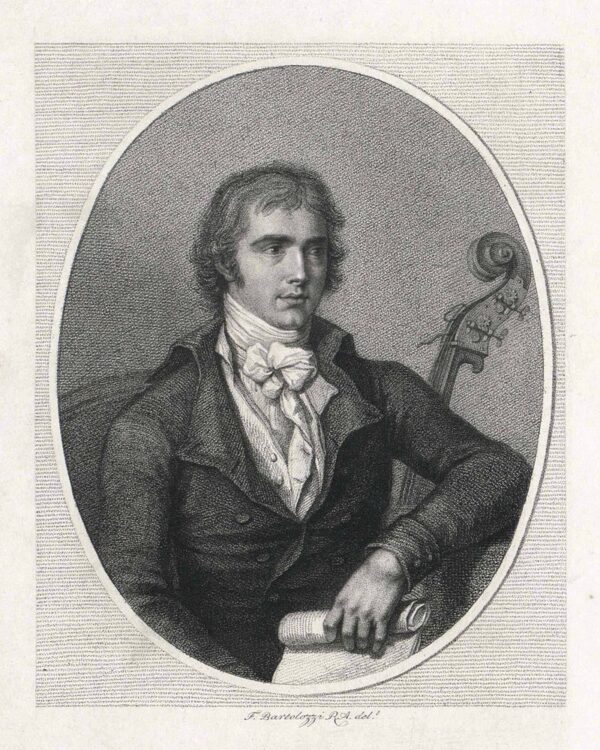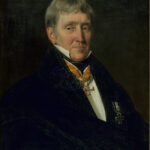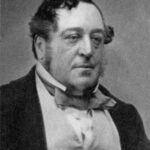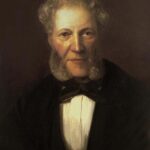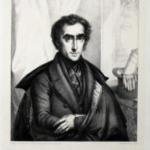In Vienna Beethoven was surrounded by musical talents. Some impressed him, some did not. Among those who did, one man stands out: Dragonetti! This man opened his eyes to what double bass is capable of. His impact lasted for a lifetime.
A short biography of Domenico Dragonetti
Domenico Dragonetti (Domenico Carlo Maria Dragonetti; 7 April 1763 – 16 April 1846) was an Italian composer and double bass virtuoso. He was born in Venice, Italy. His father Pietro Dragonetti, a barber by profession, was an amateur musician. The young boy was such a gift, that he learned to play the guitar and double bass by himself. At the age of twelve, just after eleven lessons, double bass master of Venice, Berini stated: “I have nothing more to teach this boy!” A year later he was appointed as principal bass player at the opera, in Venice.
Dragonetti soon became well know all over Europe and in 1794 he moved to London. His talent made him a celebrity, performing frequently at the concerts of the Philharmonic Society of London. During Haydn’s second visit to London the two masters had met and became good friends.
Dragonetti’s talent charmed everybody. A critic once said: “by powers almost magical, invests an instrument, which seems to wage eternal war with melody . . . with all the charms of soft harmonious sounds.”
His stamina and the strength of his hands were legendary, his grip was likened to the hands of a blacksmith. He was able to use all his five fingers to play, when the usual method was one note with the index finger and one more with the three others (the thumb resting).
He was a collector of instruments, paintings and musical manuscripts, but above all he collected dolls!
Domenico Dragonetti died in 1846 and was buried in Moorfields (London). His remains were later moved to the Roman Catholic cemetery at Wembley.
Beethoven and Dragonetti
In the spring of 1799, after a visit to his native province in Italy, and on his way back to London, Dragonetti decided to go see his famous friend in Vienna: Haydn. The two had met a few years back during Haydn’s second visit to London in 1794-1795. He stayed a few weeks in the city and enjoyed many pleasant occasions meeting the local musicians.
By that time it was impossible to be a visitor musician in Vienna and not hear about young Beethoven! They eventually had met and both were impressed by the other.
Many years later Dragonetti confirmed the events told by this anecdote:
Beethoven had been told that his new friend could execute violoncello music upon his huge instrument, and one morning, when Dragonetti called at his room, he expressed his desire to hear a sonata. The contra bass was sent for, and the Sonata, No. 2, of Op. 5, was selected. Beethoven played his part, with his eyes immovably fixed upon his companion, and, in the finale, where the arpeggios occur, was so delighted and excited that at the close he sprang up and threw his arms around both player and instrument.
Beethoven was impressed. In the coming long years of his career he utilized the possibilities of this instrument fully and no doubt from where the inspiration had come.
Dragonetti returned to Vienna many more times. He stayed for a longer period in 1808-1809. He was present also on 8 December 1813, when Beethoven’s Wellington’s Vicotory and Seventh Symphony were premiered, leading the double basses in the orchestra.
At the age of 82 Dragonetti paid his final tribute to his old friend, Beethoven. He visited Bonn in August 1845 to participate in a 3-day long musical festival, celebrating the life of Beethoven and to inaugurate his famous monument in his native city.
